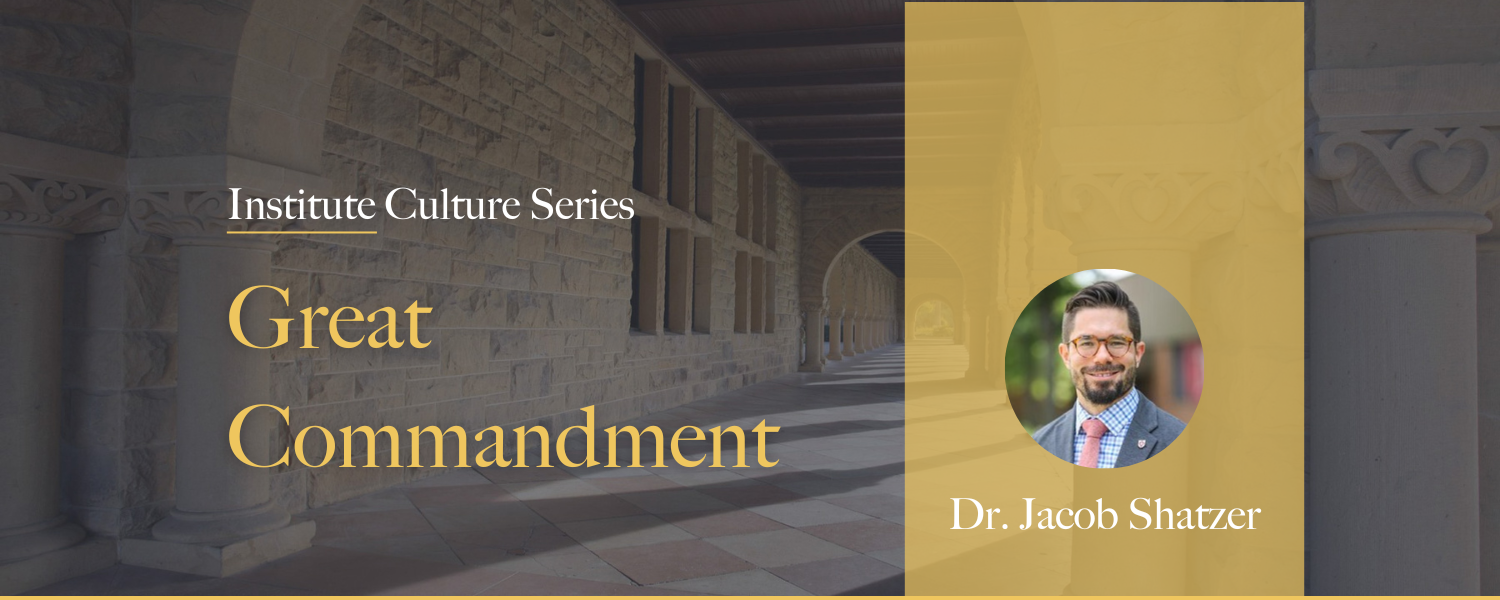You’re likely familiar with the Great Commandment. Jesus gives us this command when confronted by some theological experts, attempting to trap him.
But when the Pharisees heard that he had silenced the Sadducees, they gathered together. And one of them, a lawyer, asked him a question to test him. “Teacher, which is the great commandment in the Law?” And he said to him, “You shall love the Lord your God with all your heart and with all your soul and with all your mind. This is the great and first commandment. And a second is like it: You shall love your neighbor as yourself. On these two commandments depend all the Law and the Prophets.”
Matthew 22:34-40 (ESV)
If this greatest and most important command—and the second—are truly as great and important as Jesus says, how do they shape theological education? Let’s explore three ways.
Loving God with Our Whole Selves
Notice how Jesus expands on the command to love God. We are to love him with heart, soul, and mind. Often, we focus on the divisions between these, attempting to articulate the different aspects of a human being. When we do that, we tend to identify education—and theological education—with the mind. There are two problems with this tendency. On the one hand, we wrongly assume too much division between these three aspects of being human. Jesus emphasizes that loving God captures all of us, and it is all connected. On the other hand, we sometimes feel like the life of the mind is an opponent to faith, which we might think of as a “heart and soul” matter. Yet, this problem buys into the same divisive tendencies as the first! Rather, Jesus’ command here helps us to see that a Great Commandment Theological Education rightly orders and fuels the connection of the heart, soul, and mind for the love of God.
Spurring Our Neighbors to Love God
In the second command, Jesus connects this love of God to the love of neighbor. We are to love our neighbors as we love ourselves! If you’re familiar with this passage, it has likely lost its bite. Think about that! We naturally love ourselves, wanting what is best for ourselves, caring about ourselves, thinking about ourselves an awful lot. That’s the standard for the love of neighbor. And this love isn’t just a warm feeling of goodwill, but a deep desire for the ultimate flourishing of the person whom we love. And theological education should certainly drive toward this standard as well! Jesus’ command helps us to see that a Great Commandment Theological Education spurs love not as mere affection, but as a motivated, invested desire in directing the object of love (the self or the neighbor) to proper fulfillment and flourishing in the love of God.
Loving God and Neighbor are the Proper Focus of Theological Education
We often forget how the command ends. Let’s look again at verse 40: “All the Law and the Prophets depend on these two commands.” On one level, Jesus is simply looping back to the original question, putting a nice bow on top of his answer. They wanted to know about the law; Jesus points back to the law after he talks about the great commandment. But on a deeper level, Jesus is doing something profound here. See, the theological experts were asking about what law landed at the top of the list. Jesus gives them that, but then he also reminds us all that these commands—to love God and love neighbor—aren’t just at the top, they provide the organizing logic for all the Law (and the Prophets, too)! We desperately need this truth for theological education.
As we study God and his word, we don’t merely loop back to a love of God and neighbor, or tag it on at the end, or stop studying so we can do some worship and some service. No! If our theological education revolves around God’s word, then this truth of the centrality of these commands, the organizing logic of these commands, transforms education. It’s not about knowledge for knowledge’s sake. A Great Commandment Theological Education rejects mere curiosity and instead pursues knowledge of God and His Word oriented around the love of God and the love of Neighbor.
Conclusion
A Great Commandment Theological Education truly transforms both the teacher and the learner, all centering on, orbiting around, drawn into, the love of God and the love of neighbor. And this shouldn’t surprise us at all, as we seek to be conformed to the image of the Son (Rom 8:29; 1 Cor 15:49) through the work of the Spirit for the glory of God.
Dr. Jacob Shatzer is associate professor of theological studies and associate dean in the School of Theology and Missions at Union University in Jackson, TN. He is also serves as Director of Academic Affairs with BibleMesh.
This post is adapted from Jacob Shatzer’s BibleMesh Institute Chapel Service from Nov. 9, 2022. Click here to view a recording.
